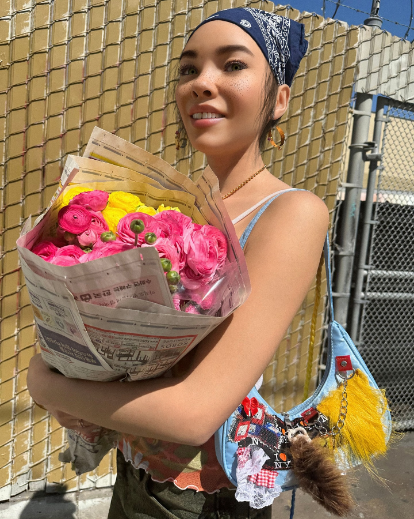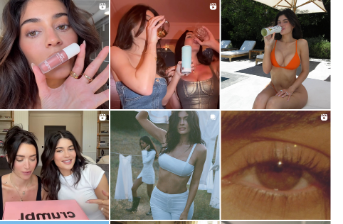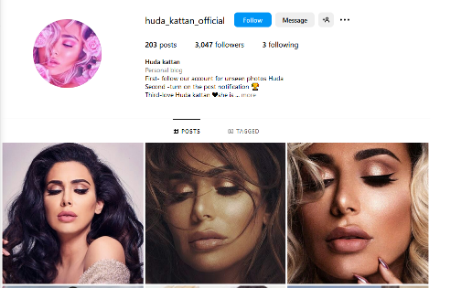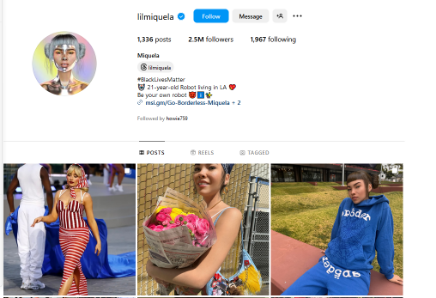- AI influencers are gaining popularity and challenging human influencers.
- Human influencers can leverage their unique qualities to stay competitive.
OUR TAKE
The rise of AI influencers like Lil Miquela sparks both fascination and concern. On one hand, they represent an innovative use of technology, blurring the lines between reality and simulation. Their flawless appearances and curated personas captivate millions, raising questions about the future of authenticity in influencer marketing. However, amidst the allure of AI-driven perfection, there’s a profound appreciation for the authenticity that human influencers bring. It’s in their imperfections, their genuine interactions, and their relatable stories that human influencers forge deep connections with their audiences. As we navigate this digital age, the coexistence of AI and human influencers offers a glimpse into a future where creativity and technology converge, shaping a dynamic and ever-evolving landscape of digital influence.
—Doris Du, BTW reporter
Lately, I’ve been dreaming about becoming an influencer. The idea of sharing my passions and connecting with a global audience excites me. But as I scroll through social media, I see a new trend emerging: AI influencers. These virtual personalities are captivating millions with their flawless content. It made me wonder, how can human influencers like myself compete with these AI-generated stars?
The rise of AI influencers
Scrolling through Instagram, I stumbled upon Lil Miquela, an AI-generated influencer with millions of followers. Her posts are perfect—she never has a bad hair day, her skin is flawless, and her captions are always on point. Lil Miquela represents the growing trend of AI influencers who, unlike their human counterparts, never tire, make mistakes, or need a break. It’s both fascinating and intimidating. How can I, a mere human, hope to compete with such perfection?

Embracing AI to enhance human influencer strategies
Born as a human, I can’t act like an AI robot but I could make use of it. As we know that AI-powered tools can analyse audience behaviour, identify peak engagement times, and suggest the most effective hashtags. These tools use machine learning algorithms to predict what content will resonate with followers, taking the guesswork out of social media strategies. I decided to give it a try.
Leveraging unique human qualities
As I integrated AI tools into my strategy, I realised something important: AI can provide data and suggestions, but it can’t replicate the authenticity and relatability that human influencers offer. I began to focus more on my genuine interactions with followers. Sharing raw, unfiltered moments and personal stories created a deeper connection. My audience responded positively to my authenticity, something AI influencers like Lil Miquela can’t genuinely offer.
The importance of storytelling
While AI tools like ChatGPT and Jasper can help generate content, they lack personal experiences and emotions. I started using AI to draft ideas but always infused my posts with personal anecdotes and genuine feelings. Sharing my journey, struggles, and triumphs made my content more relatable and engaging. Storytelling became my superpower, setting me apart from AI influencers.
Pop Quiz:
What unique quality can human influencers offer that AI influencers cannot?
A. Consistency in posting
B. High-quality visual content
C. Authenticity and relatability
D. Advanced data analysis
The correct answer is at the bottom of the article.
5. Real-world inspirations
Kylie Jenner
“AI analytics give me the insights I need to connect with my followers more deeply, but it’s my authentic interactions that truly build our relationship.”
Kylie Jenner
Kylie Jenner, with over 250 million Instagram followers, is a prime example of how human influencers can effectively leverage AI to boost their success. Known for her beauty brand, Kylie Cosmetics, Jenner uses AI analytics to gain deep insights into her audience’s preferences and behaviours. This allows her to tailor her content to what resonates most with her followers, ensuring maximum engagement.

Huda Kattan
“Leveraging AI helps me stay ahead in the beauty industry, but it’s the personal stories and genuine connections with my followers that make my brand successful.”
Huda Kattan
Huda Kattan, founder of Huda Beauty, leverages AI to maintain her position at the forefront of the beauty industry. With over 50 million Instagram followers, Huda uses AI tools not just to engage her current audience but to anticipate future trends and consumer needs. AI helps Huda analyse market trends and consumer behaviour, providing insights that are invaluable for product development and marketing strategies. For example, AI can process vast amounts of data from social media, online reviews, and sales figures to identify emerging beauty trends. This allows Huda to launch products that are in line with consumer desires, often before these trends become mainstream.

Both Kylie Jenner and Huda Kattan exemplify how human influencers can successfully compete with AI influencers by leveraging technology while maintaining their unique human qualities. Their stories highlight a crucial lesson for aspiring influencers: AI tools can provide valuable insights and streamline content strategies, but authenticity and genuine connections with followers are irreplaceable.
Embracing AI for Strategic Advantage
AI offers powerful tools for understanding and engaging audiences. By analysing data and predicting trends, influencers can stay ahead of the curve and tailor their content to maximise engagement. However, this should not replace the personal elements that make human influencers unique.
Cultivating Genuine Connections
The personal touch—sharing real experiences, engaging directly with followers, and showing vulnerability—creates a bond that AI influencers cannot replicate. This emotional connection builds trust and loyalty, essential components of long-term success in the influencer world.
Incorporating AI into your strategy can enhance your efforts, but the key to standing out is to be authentically you. As Kylie Jenner and Huda Kattan have shown, the most successful influencers are those who blend the best of both worlds: cutting-edge technology and genuine human connection.
Similarly, Huda Kattan of Huda Beauty leverages AI to stay ahead in the beauty industry while maintaining her genuine connection with followers. These influencers blend AI tools with their unique human qualities, inspiring me to do the same.
The future of influencer marketing
As AI influencers rise, the landscape of influencer marketing will continue to evolve. Human influencers can adapt by embracing AI tools to enhance their strategies while staying true to their authentic selves. The potential for collaboration between human and AI influencers is also exciting. Imagine creating innovative content that combines the strengths of both worlds.
Real-world Examples
Lil Miquela, also known as Miquela Sousa, is a prominent AI influencer created by the startup Brud. She first appeared on Instagram in 2016 and has since gained millions of followers.

- Engagement: Miquela’s posts, which include fashion shots and social justice advocacy, generate high engagement. Her interactions are designed to mimic those of human influencers, creating a realistic online presence.
- Brand Collaborations: She has worked with major brands like Calvin Klein, Prada, and Samsung, seamlessly integrating into marketing campaigns.
- Technology: A team of engineers, designers, and storytellers uses AI and machine learning to craft her content and persona, ensuring relevance and engagement.
Lil Miquela represents the cutting edge of AI influencers, blending technology with the influencer marketing model to create a new kind of digital personality. Her success demonstrates the potential of AI in shaping the future of social media and highlights the unique challenges and opportunities that human influencers face in this evolving landscape.
Despite being digital, Lil Miquela has appeared in Vogue, attended exclusive events, and maintained a strong influence in the fashion and social media worlds. Her existence challenges traditional ideas of authenticity and highlights the growing role of AI in influencer marketing.
Also read: How is AI a risk to humanity?
Also read: 10 AI-powered inventions transforming daily life
A personal reflection
Reflecting on these advancements, I feel a mix of excitement and determination. On one hand, AI influencers present a new challenge, but on the other, they push human influencers like me to be more authentic and creative. By leveraging AI tools to enhance our strategies and focusing on our unique qualities, we can compete and thrive in this evolving landscape.
AI influencers represent a significant shift in brand strategies on social media. Platforms like Influencity use AI to match brands with the right influencers, ensuring better campaign outcomes. Real-time tracking and measuring of influencer campaigns enable data-driven decisions, benefiting both human and AI influencers. This integration of AI helps human influencers like me stay competitive in an evolving market.
Moreover, AI tracks and measures the effectiveness of influencer campaigns in real-time. This capability allows brands to make data-driven decisions, adjusting strategies to optimise performance. It also ensures transparency, helping to build trust between influencers and their audiences by verifying the authenticity of engagement metrics.
As a social media user, I appreciate the polished content AI helps produce, but I also crave genuine connections. It’s the raw, unfiltered moments that often resonate the most. Human influencers who balance AI-driven strategies with authenticity will likely thrive in this new era.
In the end, AI is a powerful tool that, when used wisely, can amplify an influencer’s reach and impact. It’s not about replacing human creativity but enhancing it. As we navigate this digital age, striking that balance will be key to sustaining meaningful connections in the virtual world.
The Correct answer is C. Authenticity and relatability.
